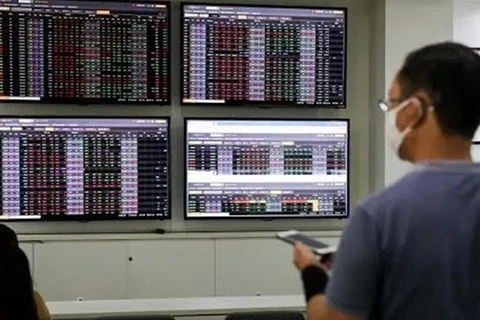Vinh Phuc (VNA) – The National Financial Supervisory Commission and the Korea International Cooperation Agency (KOICA) held a seminar in the northern province of Vinh Phuc on December 16 to look at building an early warning system for the financial market.
At present, Vietnam’s financial market comprises three major sectors - banking, securities and insurance - which are growing but still face risks, such as a high credit/GDP ratio compared to other countries in the region and the world, and high credit volume in real estate, while bad debts and assets remain within an underdeveloped debt trading market, said deputy head of the commission’s general supervision board Duong Hong Ha.
In the securities sector, the volatility of stock indices remains high. Individual investors account for about 80% of stock transactions. Up to 95% of corporate bonds are issued through private placements, and the finance - real estate - construction sector accounts for nearly 70% of market capitalisation and liquidity.
The scale and penetration of Vietnam's insurance market remain low, given that the ratio of premium volume to GDP in 2021 was 2.5% compared to ASEAN’s average of 3.35%. A number of insurance providers have also failed to follow regulations on information disclosure.
Ha suggested fine-tuning the legal framework to deal with bad debts and restructure weak credit organisations, improving policy forecasting, and facilitating the issuance of corporate bonds to the public.
There should be a roadmap for the equitisation of the Vietnam Stock Exchange, he said, adding that regulations on information disclosure and penalties for violations committed by insiders and major shareholders should be stricter.
In order to improve the resilience of banks in Vietnam, Deputy Director of the State Bank of Vietnam’s Department of Safety Policy in Bank Operation, Inspection and Supervision Le Trung Kien called for a supervision handbook to be issued to replace that issued in 2017, with guidelines on inspecting the resilience of foreign credit organisations and branches.
Dr Phung The Dong from the commission advised policymakers to actively and flexibly adjust prices of goods under the management of the State to prevent shocks to consumers. At the same time, exports should grow sustainably in both quantity and quality to ensure foreign exchange reserves.
Experts at the event also presented studies on the supervision of financial groups in Vietnam, and the impacts of macro-economic factors on the securities market and currency supplies in the country./.
























